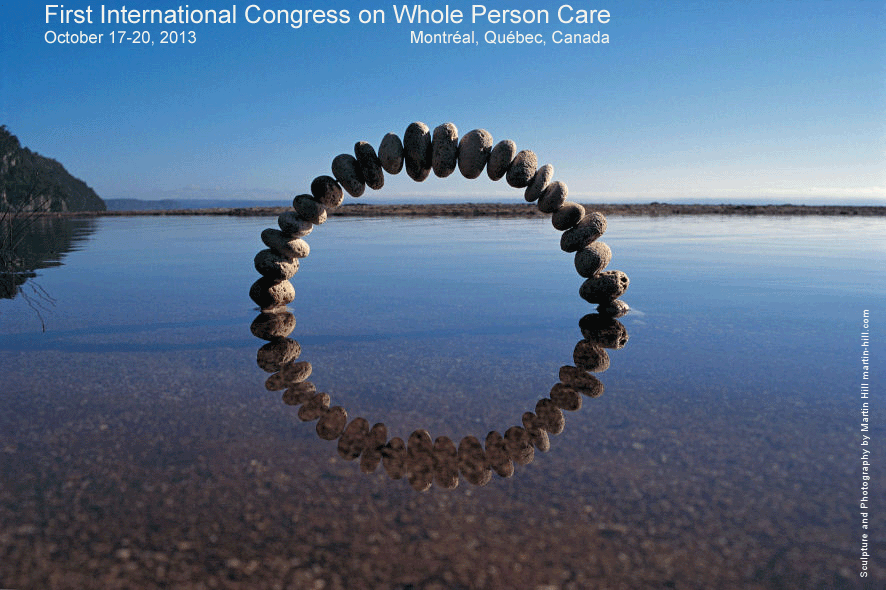Whole Person Care at the Ottawa Integrative Cancer Centre
Main Article Content
Abstract
Objectives: An interprofessional team of healthcare practitioners at the Ottawa Integrative Cancer Centre (OICC) provides individualized and whole person care in an effort to bridge the gap between conventional and complementary cancer care. The objective of this presentation is to describe the population receiving care at the OICC in terms of demographic and disease-related characteristics, in addition to their experience receiving care in terms of therapies received and preliminary outcomes.
Methods: All people receiving care at the OICC are invited to complete a registration package that documents demographic and disease-related characteristics in addition to baseline quality of life (EORTC-QLQ C30), cancer-related symptom (ESAS) and patient-identified concerns or problems (MYCaW). Every 3 months, a follow up assessment is completed for continuing patients.
Results: In the 18 months since opening, more than 600 unique people have received care at the OICC. Most commonly people consult a naturopathic doctor, often in combination with a general practitioner, nutritionist, acupuncturist, physiotherapist, or counselor. The majority of people seek care to manage cancer and treatment-related side effects, including pain, neuropathy, energy, and digestive concerns. Other people are seeking supportive interventions to their prescribed standard care, to control or cure their cancer, or to prevent a recurrence. Approximately one half of people self-identify as under distress for at least one common cancer-related symptom. Preliminary results will be presented regarding quality of life, cancer related symptoms and patient-identified concerns, stratified as possible by age, sex, cancer type, stage and types of treatment received.
Conclusions: The results presented here contribute to an understanding of who seeks integrative and whole person care as well as the growing body of literature regarding potential benefits. Results will be used to guide development of a clinical trial designed to assess the feasibility, safety, effectiveness, and cost-effectiveness of integrative, whole person cancer care.
Article Details
Authors retain copyright and grant the journal right of first publication with the work simultaneously licensed under a Creative Commons Attribution License that allows others to share the work with an acknowledgement of the work's authorship and initial publication in this journal. Creative Comons 4.0 CC-BY
Authors are able to enter into separate, additional contractual arrangements for the non-exclusive distribution of the journal's published version of the work (e.g., post it to an institutional repository or publish it in a book), with an acknowledgement of its initial publication in this journal.
Authors are permitted and encouraged to post their work online (e.g., in institutional repositories or on their website) prior to and during the submission process, as it can lead to productive exchanges, as well as earlier and greater citation of published work (See The Effect of Open Access).
